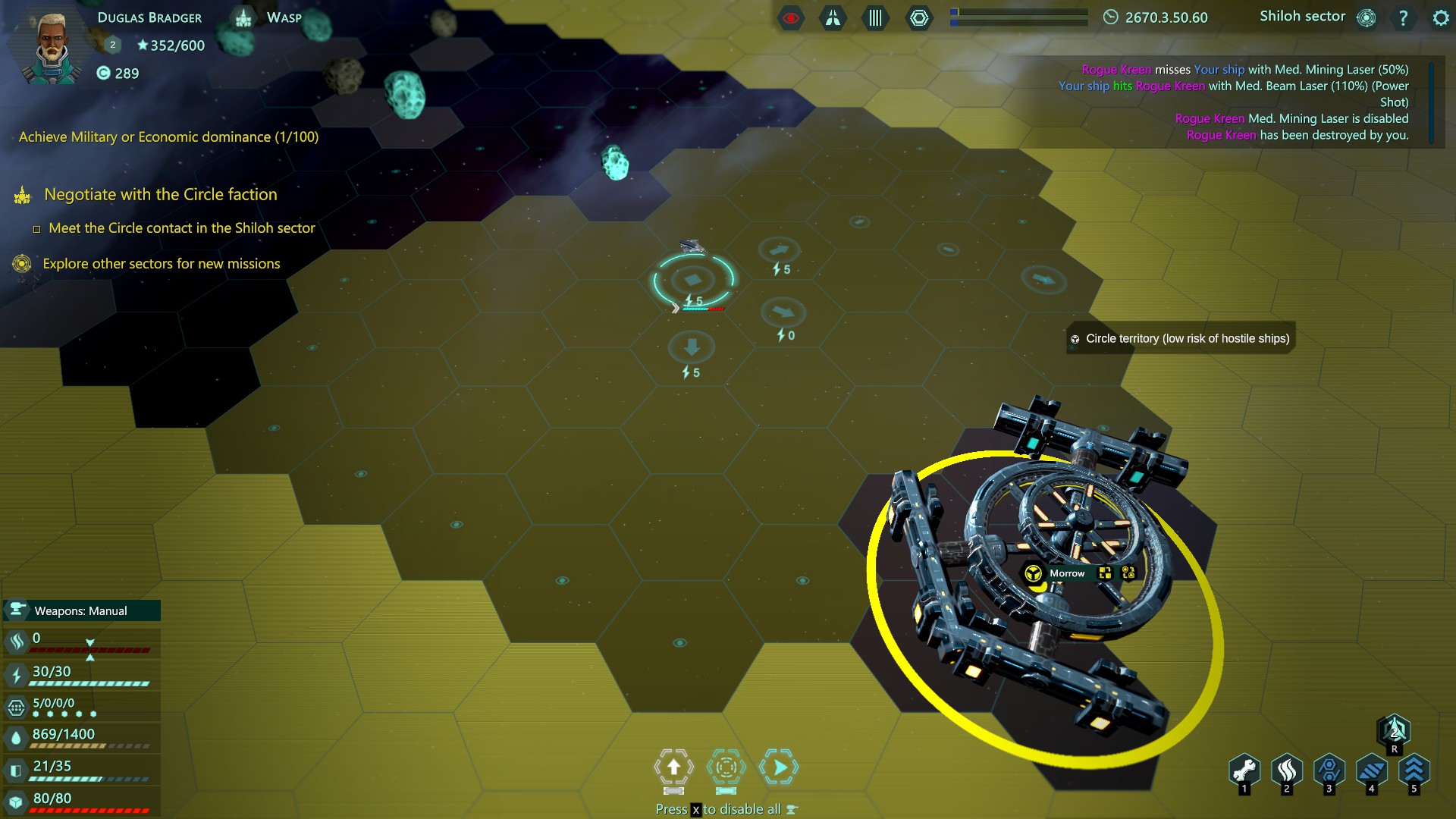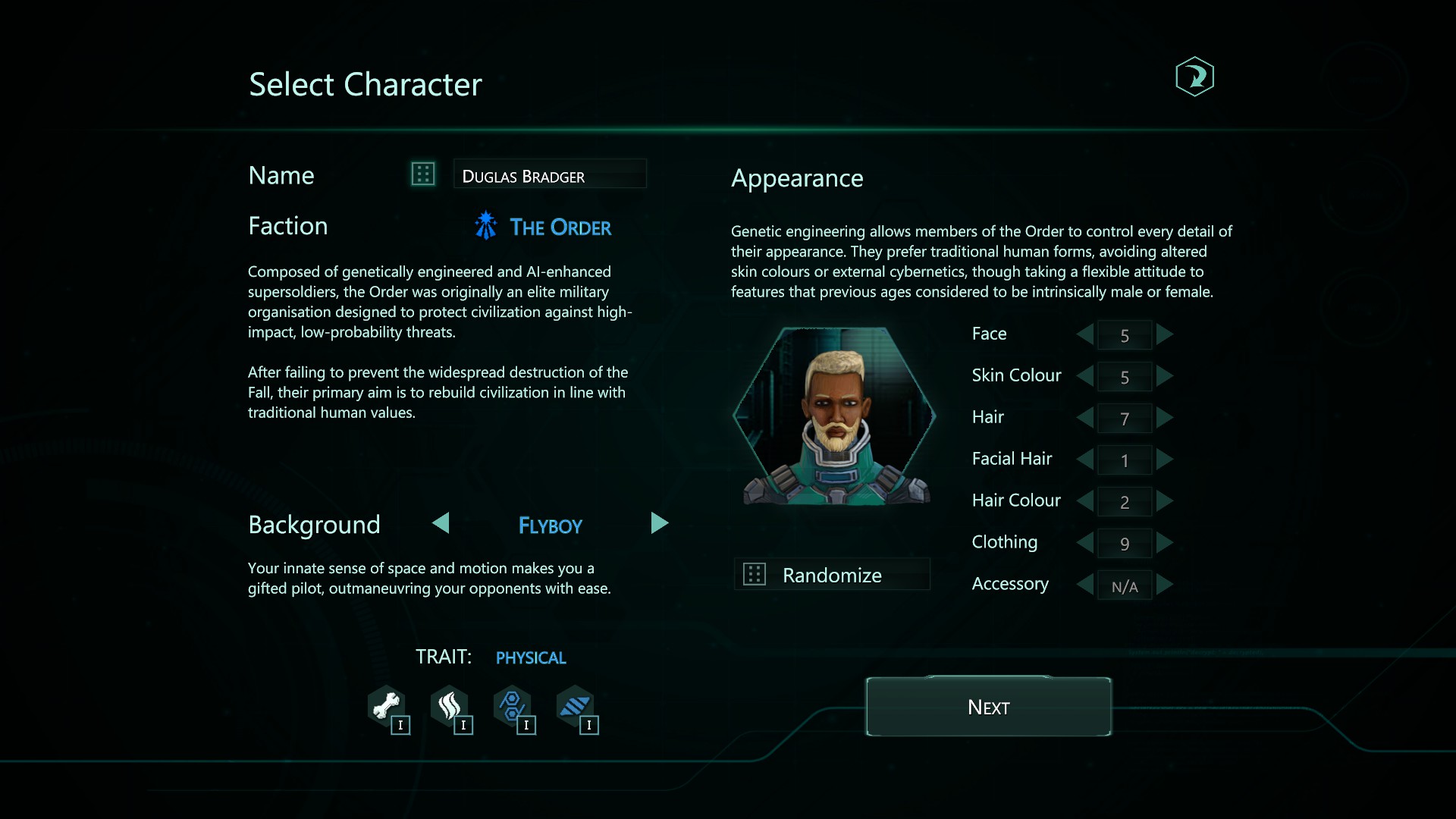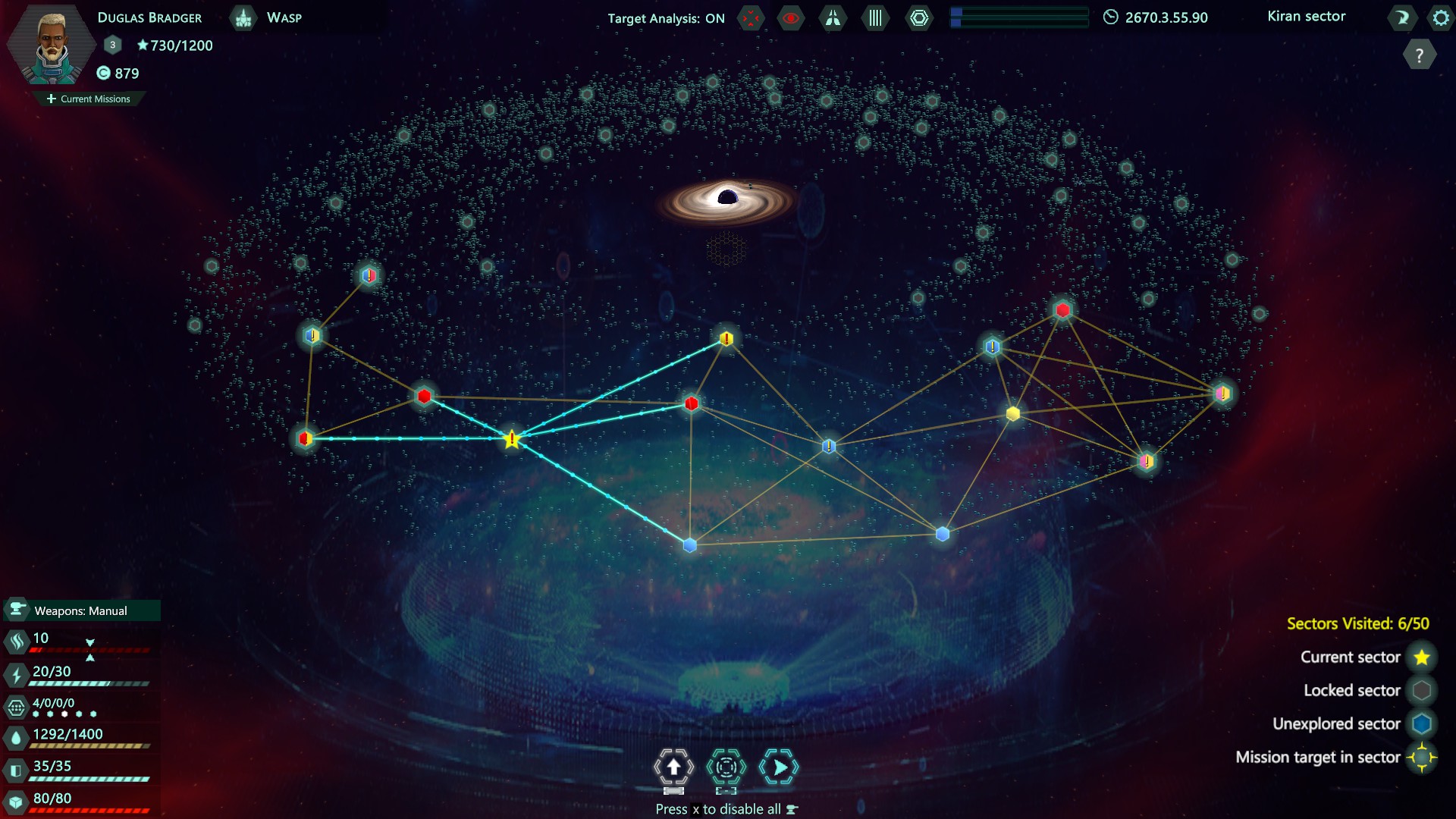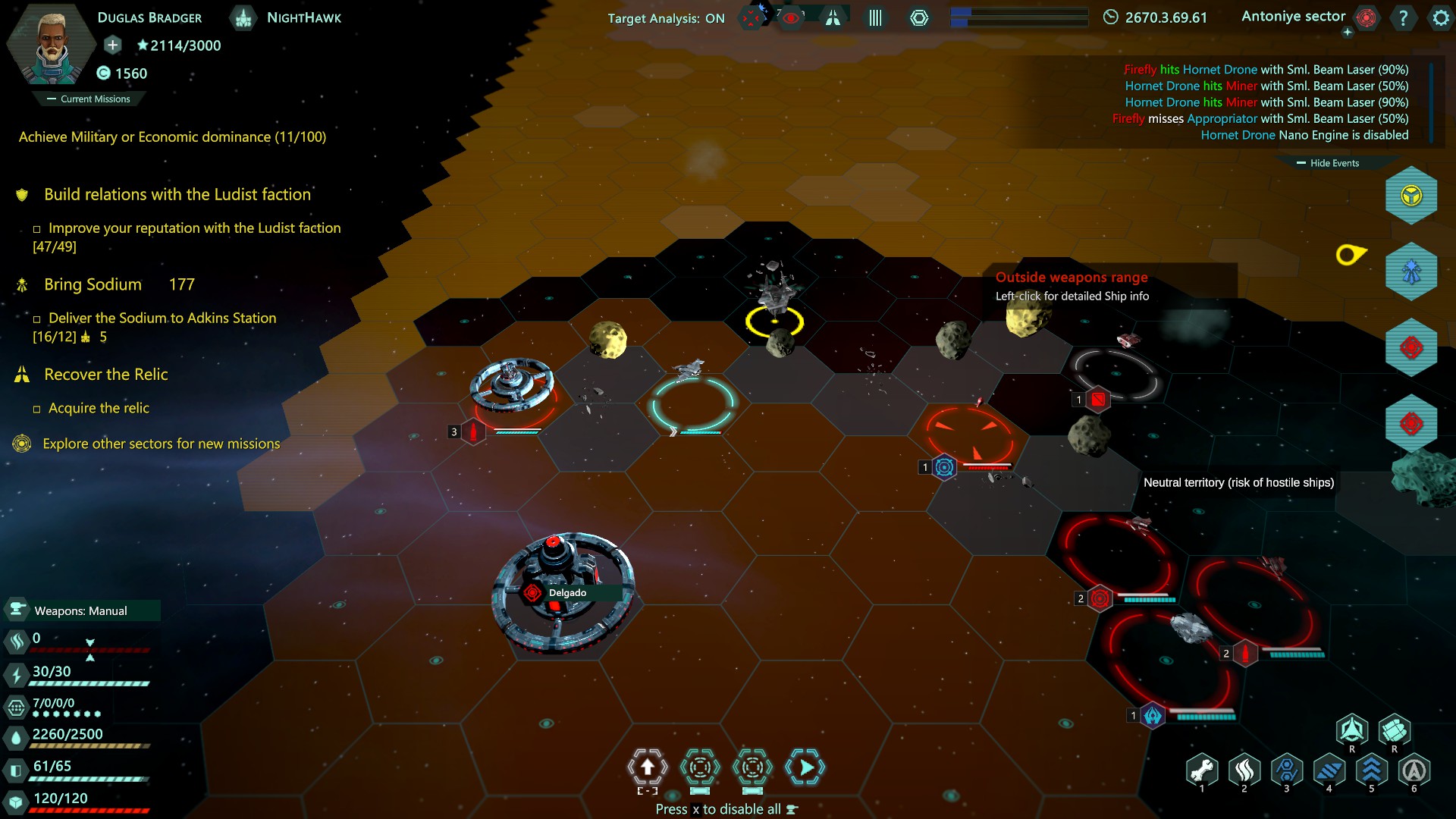Is Relic Space the final frontier of turn-based 4X games or a relic of the past?
If there’s a single compliment I could give about Relic Space, it would be that it’s ambitious. That’s not to say there’s nothing else positive to be said about it, believe me there is. But a game of this scale coming from one-man dev team Fourfold Games is quite an impressive feat, and whilst Relic Space is only in Early Access at this point the systems are all in place for this to be a game of impressive scope once it’s finally finished.
There’s a story setup here, but it’s not developed much at this point. Essentially, the planets across the galaxy were all destroyed in a cataclysmic event called The Fall. Various factions are all in competition to acquire knowledge and relics of the past to restore civilisation in their image. You are a pilot of the Omega Wing, a squad of elite pilots working for The Order who are seeking to achieve this goal.
The story kind of peters out there, with little to push it forward throughout the campaign, but there are seeds in place for something quite significant. Fourfold Games have said that in the full release, one way of finishing the game is to complete the story missions for your faction. I’d appreciate this quite a bit, as once you’re through the tutorial, there’s not a huge amount of direction in what to do next or why you should be.

This freeform nature feels somewhat deliberate though. Relic Space is touted as a 4X game — think Civilization or Stellaris — but with you playing as a single person rather than running the whole faction. Your goal is to steer your people towards either an economic or military victory, but seeing as you’re just one pilot, you can’t really make the decisions that have overall influence. Instead, you complete quests for your own and other factions, fight off enemies, and trade your way to success. Depending on what you do, you’ll acquire points for your team’s military or economic score, with the first faction to reach 100 being the victors.
It’s an odd combination of gameplay styles, as left to their own devices each group will progress towards victory on their own. You could quite happily fly around, shooting down civilians and just see who wins out. That sort of defeats the object though, and you should aim to complete quests for your group to earn points towards glory. Depending on the sort of missions you do, you’ll acquire different points. Transporting resources scores for economic victory, whilst patrolling and defending pushes you towards military success.
As you explore the nodes of this procedurally generated galaxy, you’ll find space stations of your own and enemy factions. Interestingly, these aren’t necessarily hostile to you and you can complete quests for them too. Obviously, this pushes them towards victory, which isn’t ideal, but you also gain money and reputation with them, allowing you to buy items that you otherwise wouldn’t have access to. It’s a nice system that means you could reduce the number of enemies you face by playing nicely with them at the cost of your opponents getting closer to winning.

Speaking of shopping, buying new ships, and upgrading your current one is quite crucial. Your initial craft will do you well enough early on, but as the game progresses and you face off against more and more foes at one, you’ll really need an upgrade. By gaining reputation with different factions, you can buy new spacecraft, weapons, and upgrades using cash you make from quests and trading. Much like Elite Dangerous, there are ships more suited to fighting and others more suited to transport. In my experience, you’ll get randomly attacked a lot, so going for a fighting vessel seems absolutely essential.
Relic Space has done a lot to model various systems in your ship. You’ll need to manage energy, heat, shields, and weapons during any engagement. Too much heat can start a fire on board, and too little energy leaves you unable to move. Deciding when to not use your weapons is as important as deciding when to use them, and equipping your ship with heat sinks and generators should be a real consideration. Depending on the class you choose at the start of the game, and how you level up your pilot, you may have access to some skills to help you out here, so completing quests for your own benefit is often a good move.
The whole game is a fairly fast-paced turn-based affair, and combat is no exception. When it’s your turn, you can move to another hex and fire your weapons as well as activate skills. There’s an interesting movement model, with you being able to move in straight lines or small turning arcs, but if you want to spin around you’ll need to remain in your current hex as you do so, leaving yourself more vulnerable. Once you’ve done your actions, everyone else goes simultaneously, so you can get swarmed quite quickly if you don’t think carefully.

If it sounds like there’s a lot going on here, that’s because there is. The tutorial gives you enough to be getting on with, but you really do need to give the in-game manual a bit of a peruse if you want to get the most out of Relic Space. There’s a lot more in there about how relics work and what additional benefits each victory track will unlock for you. In that regard it really is like a 4X.
The real question is about how it plays though. Mechanically, everything is sound and works well enough aside from the occasional control hiccup that will likely be ironed out over time. You can navigate quickly enough, and combat encounters will be as quick as you want them to be, although travelling from node to node on the star map is a bit annoying as there isn’t a way to plot a course and have your ship hop through nodes automatically. Instead, you have to go to each node, then go back into the map and select another. This is quite annoying if you’re planning on travelling to the other side of the galaxy.
Being procedurally generated is the real problem here. As it stands, many of the quests you pick up are almost exactly the same. You’ll pick up and deliver a resource or patrol and fight off some enemy vessels, meaning your progression can be quite dull as you try to reach that 100 point milestone. The other issue is that I found myself comparing this to other 4X style games in which you develop almost personal rivalries with the leaders of other factions. Because you’re just one person in this expansive galaxy, you never really feel as though you’re against anyone in particular. Rather, you’re competing with faceless organisations. Whilst this may be realistic, it’s not nearly as exciting as getting one over on Gandhi. Once the storyline is implemented, I think this will be a lot more interesting and will likely keep me engaged for much longer.

The sound and visuals could also do with some work. Everything is quite functional, but the character designs are quite bland, which certainly compounds my issue with your opponents lacking personality, and the sound effects are very weak. Perhaps these will also be developed with time.
In spite of those issues, I found myself getting that “one more turn” itch that the best turn-based games give you. Because each turn is quick and can progress you towards victory significantly enough, you may well find yourself completing a mission and then finding another one and just wanting to complete that one. Then you get ambushed and just want to get this combat over with. After that you’ve got enough credits to buy that new ship you wanted. It can stack up in the most addictive way. I do like Relic Space, and I’m looking forward to going back to it once it’s more fleshed out. As it stands, I feel this is a pretty good option for only £15, as there aren’t many games like it. If someone told me there was a cross between Armello, Elite Dangerous, and Stellaris I’d have called them a lunatic and a liar. I’m just glad there’s someone out there mad enough to try and make it work.
Relic Space is available now on Steam Early Access.
Comments are closed.